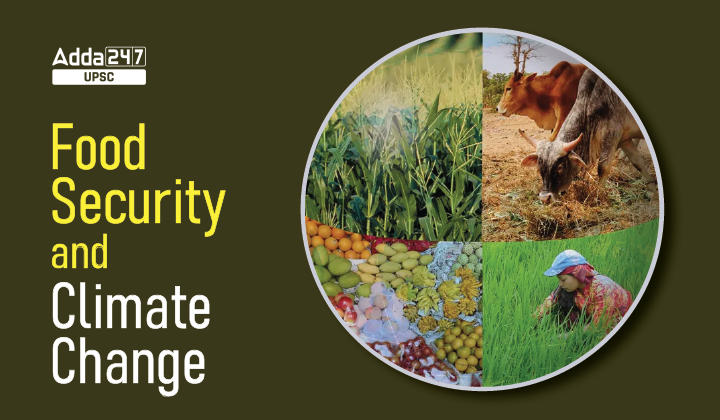
A Crisis of Policy and Priorities
The recent decision by the federal government to open Nigeria's borders to the importation of essential food items such as rice, maize, and wheat has once again exposed the inconsistencies and short-sightedness that have plagued the country's national food policy. While the intention behind this move may have been to address the rising costs of living and the widespread hunger affecting many citizens, it has instead triggered a new crisis that threatens to undermine the very foundations of Nigeria's food security.
This policy, announced in 2024 by the Minister of Agriculture and Food Security, Senator Abubakar Kyari, was a response to the soaring prices of food and the increasing number of people struggling to afford basic necessities. The Nigeria Customs Service (NCS) reportedly waived billions of naira in import duties on these staples, with the government hoping that increased imports would flood the markets and bring down prices. Initially, there was a noticeable decline in the cost of some key staples. However, this apparent success proved to be fleeting and superficial.
One major issue is that the purchasing power of the average Nigerian has not improved. The inflationary pressures that initially pushed food prices beyond reach remain unaddressed. As a result, despite the availability of imported food items, many Nigerians still cannot afford them. This situation highlights a deeper problem: the failure to tackle the root causes of economic instability.
Local farmers, who have invested their time, effort, and borrowed funds into planting, tending, and harvesting their crops, are now facing despair. These farmers faced high costs for fertilizers, improved seeds, and pesticides, all while dealing with insecurity and inadequate infrastructure. Now, they are forced to sell their produce at a loss due to the influx of cheaper imports. Many are unwilling to return to farming this season because they must sell their grains just to afford the fertilizers needed to improve their yields.
This is more than an economic loss for farmers; it is a national emergency. If local producers are discouraged from cultivating crops, what future does Nigeria's food system have? The situation is compounded by the fact that rice millers and other food processors, who had invested heavily in local production, are now shutting down their operations. These businesses, many of which had taken loans to expand their capacity and employ more Nigerians, are now facing ruin.
While some of these businesses may be guilty of hoarding paddy to manipulate prices, the broader issue remains that the government, by allowing unregulated importation, has made their investments unsustainable. This is a dangerous stalemate where the government has a duty to ensure food affordability but also must protect and promote local production. Striking a balance is not easy, but it is essential.
The core of the problem lies in the absence of a coherent and forward-looking food policy. There is no documented blueprint that defines how each segment of the food value chain—from input supply to production, processing, storage, and marketing—should be supported. This lack of strategic direction has led to ad hoc decisions that end up doing more harm than good.
A well-thought-out food policy must recognize that importation can never be the foundation of food sufficiency. It can only serve as a short-term palliative during emergencies and must be closely monitored to prevent abuse. Anything more than that is economic sabotage.
Instead of perpetuating this cycle of dependence, the government must revisit its approach. First, it must subsidize agricultural inputs such as fertilizers, pesticides, and improved seedlings. These subsidies should go directly to farmers, not through middlemen or compromised channels. The government must also establish a monitoring framework to ensure that every intervention reaches its target.
Reviving key industries that add value to farm produce is equally critical. Nigeria once had a robust textile, starch, and food processing industry that provided a guaranteed market for farmers. Their collapse has led to a glut of raw produce and loss of value. These industries must be brought back to life.
Adopting a price support policy where the government buys excess produce from farmers, stores it in strategic reserves, and releases it when scarcity looms is another necessary step. This model is used globally to protect farmers and stabilize the market. It is not a radical idea; it is sound economic management. Nigerians are too vulnerable to be left to the whims of market forces.
We must also confront a bitter truth: Some farmers and millers have betrayed public trust by misusing agricultural loans and grants. Instead of investing in machinery or expanding their operations, they built lavish homes, bought luxury cars, and married new wives. These acts of sabotage must not go unpunished. Accountability is essential to restoring trust and making government interventions effective.
Nigeria stands at a crossroads. Endless importation is not the way forward. It will create temporary relief while destroying the foundation of local food production. If this trend continues unchecked, we risk a future where we cannot feed ourselves, where our farms are abandoned, and our industries shuttered. That is a road to economic collapse.
The government must wake up. It must chart a clear path forward—one that prioritizes local farmers, supports food processors, protects consumers, and promotes national self-reliance. Anything short of that is a betrayal of Nigeria's future. Enough of the fire brigade approach. Let us fix the root of the problem.


Posting Komentar